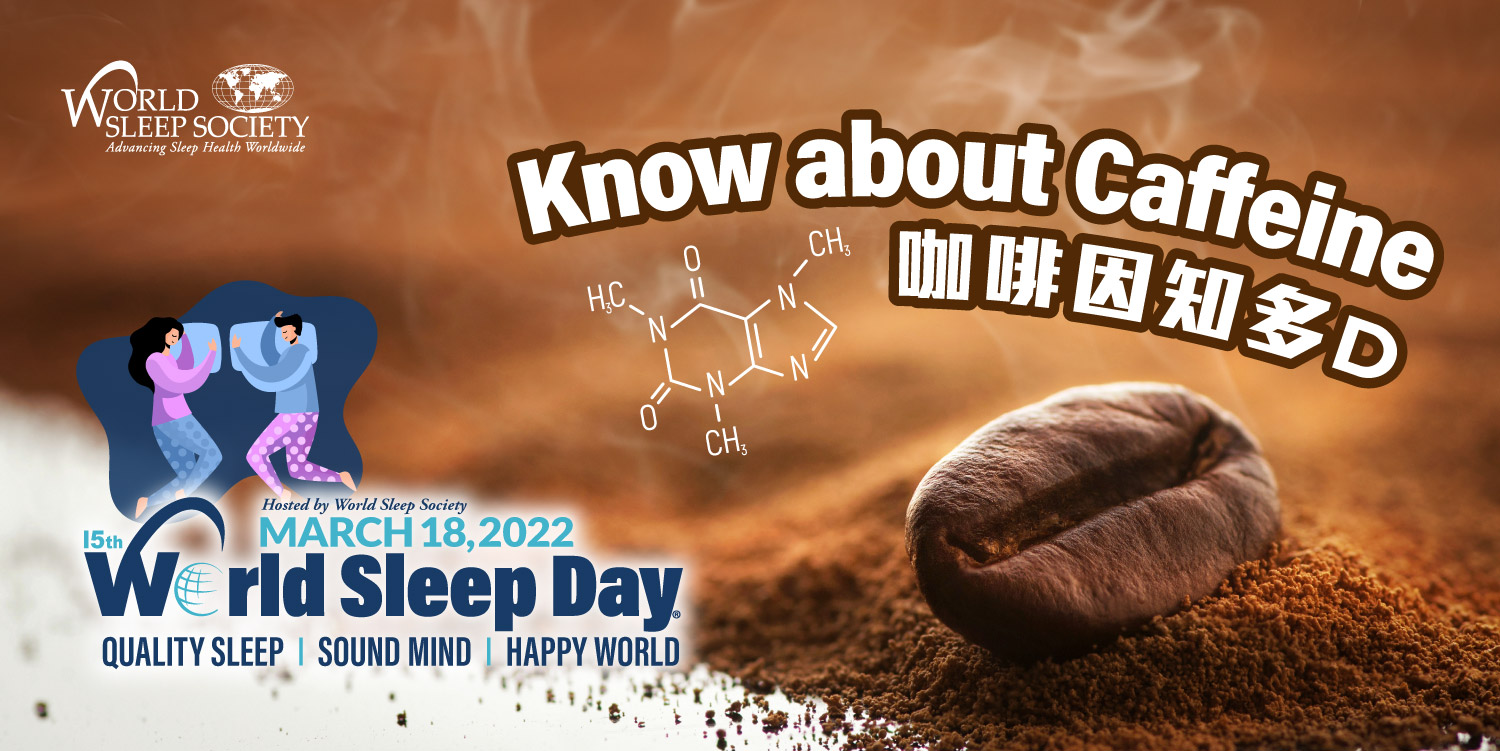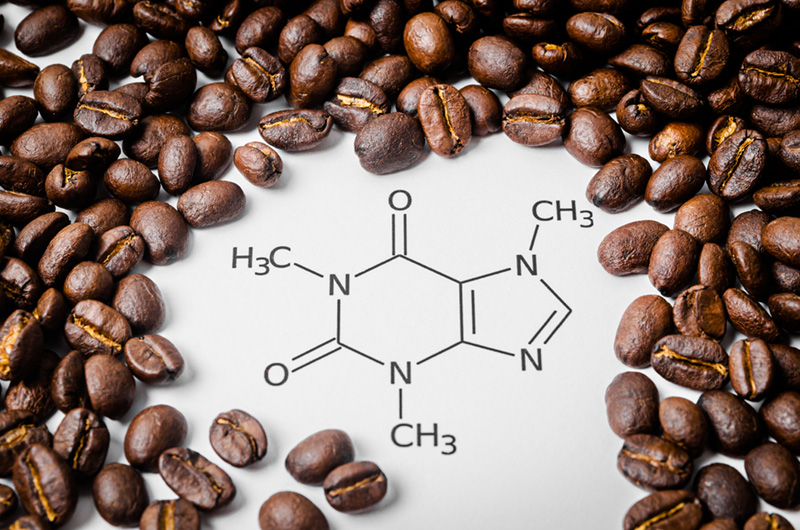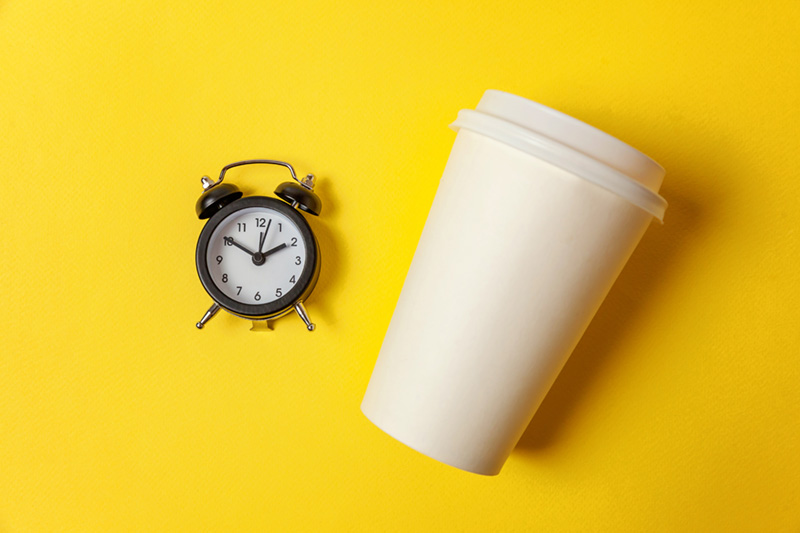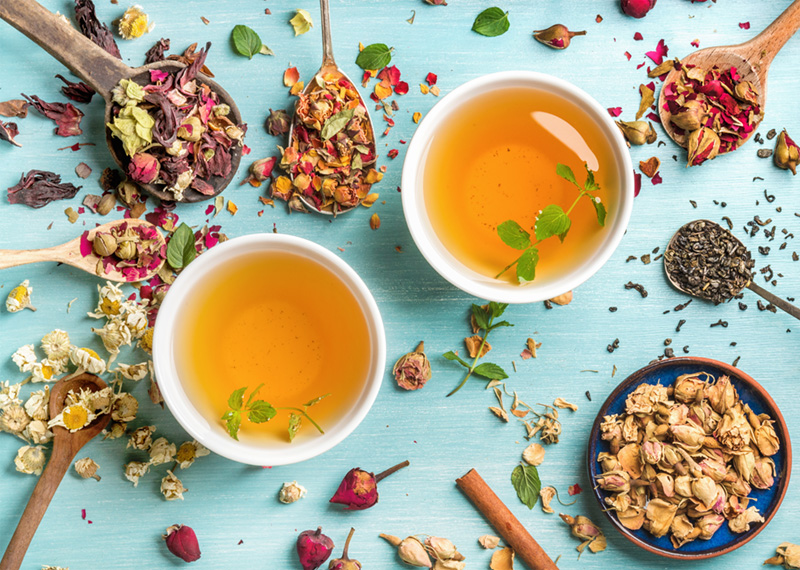[Beyond The Kitchen] World Sleep Day (March 18th): Know about Caffeine

World Sleep Day, the third Friday of March, is an annual event organized by the World Association of Sleep Medicine with the aim to raise awareness in the importance of sleep quality and quantity for overall health and wellness. In fact, the chronic lack of adequate sleep does not only give you dark circles, but also increases the risk of obesity, diabetes, cardiovascular diseases and other chronic health threats.
It is easier said than done when it comes to getting enough sleep as a HKer. Since many of us rely on caffeine to get through the long days, let’s take a good look at how caffeine affects our body and sleep quality!

Where does caffeine come from?
Caffeine is naturally found in coffee beans, tea leaves, cocoa beans and kola nuts.
What foods contain caffeine?
Any food products made with the above as ingredient would contain a certain amount of caffeine, such as coffee, tea, chocolate and some soda drinks.
Taking a “small cup” size (i.e. ~240 mL / 8 oz) as standard, the caffeine content levels of beverages commonly available in HK are as follow:
| Beverage category | Caffeine content (mL) |
| Expresso drinks (e.g. Latte) | ~200 – 300 |
| Cold brew coffee | ~200 – 330 |
| HK style milk tea | ~80 – 230 |
| Taiwanese style milk tea | ~60 – 120 |
| Drip / Brewed coffee | ~100 |
| Instant coffe | ~70 |
| Black tea | ~50 |
| Green tea | ~40 |
| Soda drinks | ~8 – 30 |
How does caffeine keep us awake?
Caffeine keeps us awake by suppressing the activity of a chemical called adenosine in our body.
During daytime, our body constantly converts energy from food we consumed, during which adenosine is produced as a form of metabolic waste. As the day goes by, adenosine accumulates in circulation and continues to binds with the neurons in our brain, causing the build of sleepiness.
Caffeine has a very similar molecular structure as adenosine, hence, is able to compete for the cell binding sites and inhibits the activities by adenosine. Caffeine is rapidly absorbed into circulation within 45 minutes of consumption and can peak within 15 minutes to 2 hours. During this time, caffeine helps to temporarily suppress (or delay) the feeling of “drowsiness” or “sleepiness”.

How much caffeine can we consume in a day?
There has yet been a consensus of the recommendation of daily caffeine intake, the general guidance is as follow:
| Age group / population | Recommended maximum daily intake | 參考權威 |
| General adults | 400 mg | National Health Service (UK), United States Department of Agriculture, Dietitians of Canada |
| Pregnant or lactating women | 200 – 300 mg | Centre for Food Safety (HK), Food Standards Agency (UK), Public Health Agency of Canada, European Food Safety Authority |
| Children below age of 12 | 2.5 – 5 mg per kg body weight | Centre for Food Safety (HK), Public Health Agency of Canada, Public Health Agency of Canada, Food Standards Australia New Zealand, European Food Safety Authority |

Why do we still feel tired, or even more tired, after drinking coffee sometimes?
Caffeine only works as a temporary blocker of adenosine (hence the sleepiness), not a correction or replacement of the sleep our body needs.
While caffeine runs in our circulation, adenosine is still being constantly produced and accumulated. Once our body clears out the caffeine, adenosine will bind with the neurons again and bring back an even stronger kick of sleepiness.
In general, it may take up to 10 hours for the body of a general adult to remove all caffeine consumed. Hence, consuming too much caffeine or having it too late in the day may impact your sleep quality and quantity. Using caffeine as a quick fix to the tiredness after a poor night of sleep is often the first step of the viscous cycle.
Do beverages such as coffee and tea impact our health in any other ways?
- Coffee and tea also contain another chemical called Tannin which hinders iron absorption in the gut, hence, may lead to iron-deficiency anaemia in long terms. Try to consume these beverages at least two hours before and our hour after meal time.
- Many caffeine-containing beverages (such as Taiwanese style milk tea and espresso drinks) contains a significant amount of added sugar and dairy products. To avoid consuming unnecessary free sugars and saturated fats, try asking for a no sugar, reduced sugar and plant-based milk order!

References: CUHK Medical Clinic, Dietitians of Canada, Centre for Food Safety, United States Department of Agriculture (USDA), School of Public Health, Department of Health, National Health Service (UK), Urry E, et al. Curr Top Behav Neurosci, Institute of Medicine (US)

